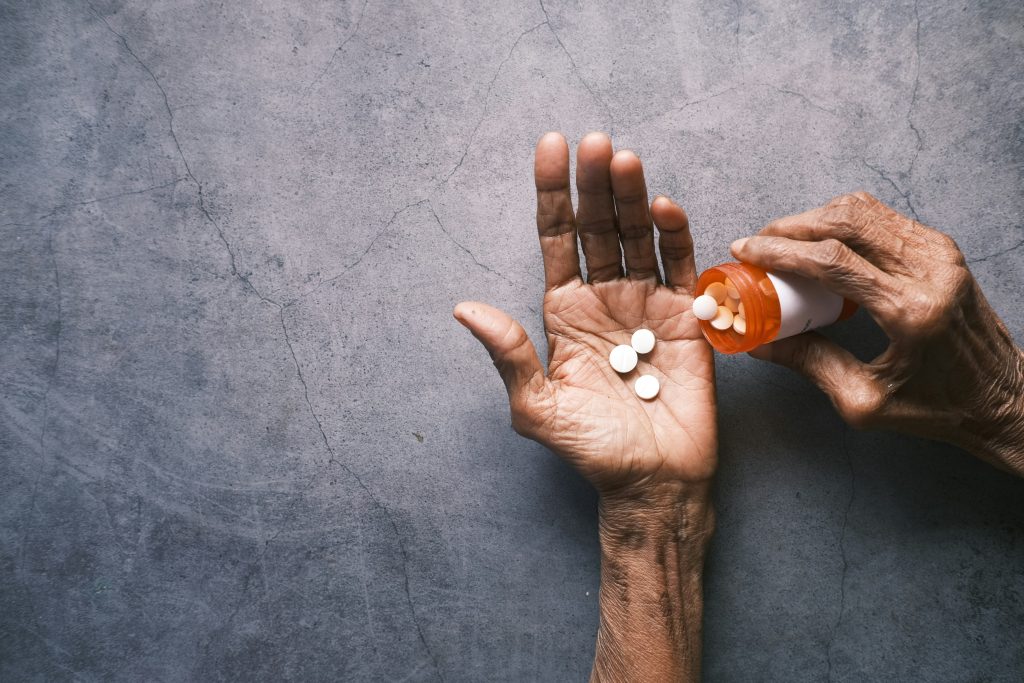The second wave of Covid has been devastating in India this year. There are reports that indicate the lack of preparedness for the second wave after the initial wave last year. It was widely believed that Covid affected older individuals disproportionately with greater mortalities. On the other hand, it spared the younger people in the population who just got mild infections and recovered quickly.
Could this belief that Covid affects older individuals only have hampered the preparation to counter Covid’s subsequent waves?
Covid-19 ageism
Covid ageism was mentioned in a Lancet article in October 2020. Older people would be more afraid of getting the disease. They would also worry that if they were infected they would not get the appropriate care. The medical community would prioritise medical care for the younger population. The article mentions the “nonchalance with which COVID-related deaths of older adults have been occasionally treated by politicians and governmental bodies, and in public discourse”. This includes its negative impact on the mental health of the elderly.
According to the World Health Organisation’s 2021 Global Report, Indians have one of the highest rates of ageist beliefs. This is besides other parts of Asia and Africa (e.g., Nigeria and Yemen). India, China, and Japan are usually regarded higher in filial piety and respect for the elderly than anglophone cultures. However, this recent analysis showed the opposite pattern. Anglophone cultures (e.g., in Europe) held older adults in higher esteem than the ones in Asia. And this was attributed to the changes in demographics and an ageing population.
Different kinds of ageism
Ageism is classified under two major categories – hostile and benevolent. Hostile ageism views older adults as a burden on the society and results in dismissive or hostile actions. Benevolent ageism stereotypes older adults as weak, fragile, and dependent and may appear compassionate but has an undercurrent of patronisation.
A recent study showed that both types of ageism were related to lesser intention of social distancing. This is a primary preventive behaviour during the Covid-19 pandemic. In other words, people scoring high on hostile and benevolent ageism were less likely to engage in social distancing themselves. This implies the direct impact of ageist attitudes on their behaviour. So, your bias and beliefs directly influence your behaviour and could jeopardise health of the elderly and young around you.
Why ageism can be fatal during Covid-19
“Ageism comes with a price, costing us the intergenerational solidarity that’s needed during the current COVID-19 crisis,” says Hans-Werner Wahl. He is professor of psychology at Heidelberg University, who studies aging. Stereotypes about older people as inherently frail and weak are known to influence people’s own perceptions as they age. They are more likely to attribute any health condition to age rather than lifestyle or personal choices when it may not always be the case.
Besides the intergenerational solidarity needed for this crisis, these ageist beliefs also probably influenced the policy making and decisions by governments overtly or covertly. There are a lot of older people who did survive Covid and a lot of younger people who did not. The fact that several centenarians survived Covid has generated a lot of scientific curiosity and it has been attributed to their genetic make-up, among other factors.
Ageism in the medical community
There are several healthy and fit older adults and several unhealthy younger adults. Using age as an indicator for one’s health status and prognosis alone is dangerous but also rampant in the healthcare system. It is sheer laziness to attribute the diagnosis and prognosis of a patient to age alone. There is increasing evidence that the new strains are affecting people in all age groups, including children.
The healthcare system is also notorious for their ageist attitudes in treatment of older adults, including ‘under treatment’ of older adults where they may be told that their diagnosis like high blood pressure or sugar levels are “okay for their age”, when it is clearly not a healthy sign. Or sometimes medical information is withheld from the older adults so that they are not ‘stressed’ or the belief that it would not work for them due to their age, demonstrating the patronising and dangerous aspects of benevolent ageism.
There is evidence to show that people above the age of 65 are under treated for cancers due to such presumptions. Swaminathan and Swaminathan (2015) emphasise the need to remove prejudice against older adults by providing them clear information about their treatment options for cancer. The rates of diagnostic, therapeutic, and rehabilitation procedures for stroke patients were found to be lower in older adults than younger adults in a pan-European study even though there are no differences in the health outcomes after stroke if the same care is provided to people across ages.
Added challenges of older adults
Older adults face economic constraints, inadequate medical care and increasingly a lack of social support in our societies. Ageist beliefs and attitudes add to their existing woes and can have a detrimental impact on their future. But these beliefs are not only harmful to the older adults but the larger society. If each and every individual’s life was thought to be valuable irrespective of age, there might have been exigency and better preparedness to face this current crisis.
The World Economic Forum had a virtual dialogue series on Covid and Ageing Society from which emerged certain important themes. The first theme emphasised the elimination of ageism in both Covid responses and the larger healthcare system. Another theme emphasised the inclusion of the older adults in creation of solutions as they can play a major role due to their high levels of resilience across socioeconomic backgrounds, personal experiences and declining health. Intergenerational solidarity is also needed to maximise support and connectedness with older adults during Covid-19 and after.


